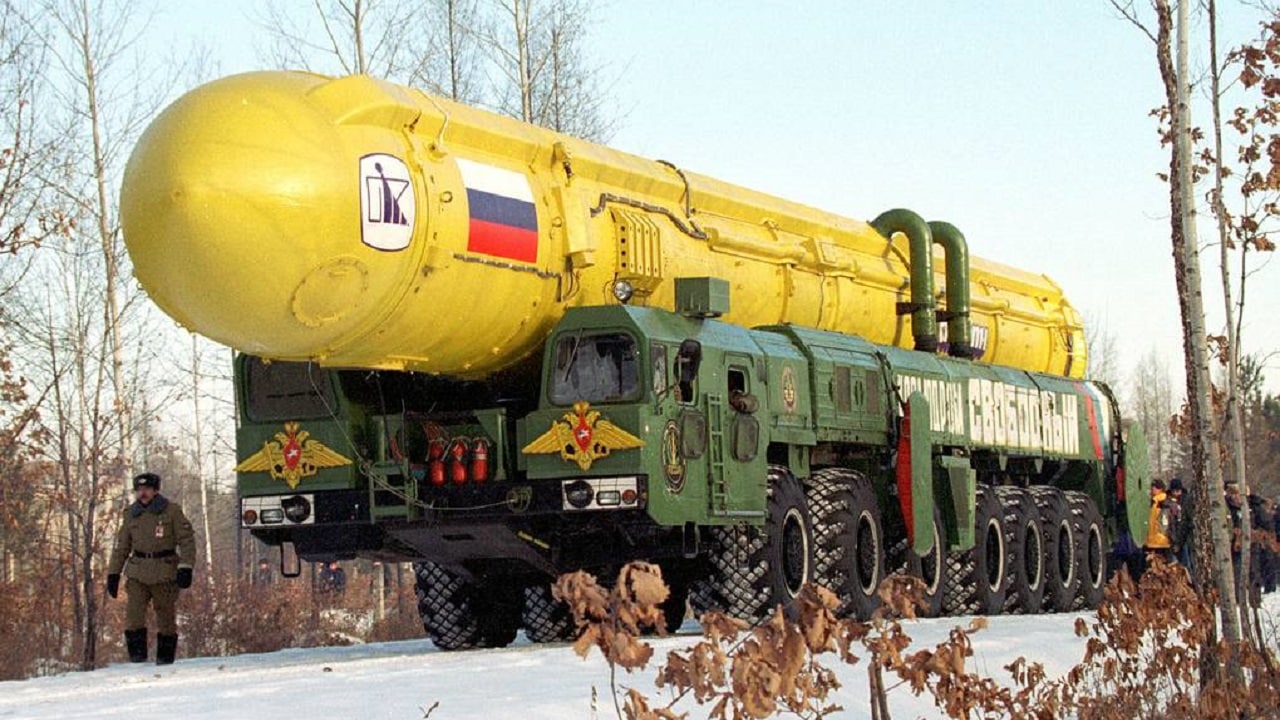What contribution have nuclear weapons made to the Russia-Ukraine War? For all its destructiveness, the conflict has fortunately remained conventional. Russia has not used a nuclear weapon in Ukraine, and given its (plodding) battlefield successes over the past two months, concerns over a nuclear detonation seem to be passing. However, the question of how nuclear weapons have affected the course of the war (and the end of the peace) is essential for the future, particularly as the US defense establishment contemplates the modernization of all three legs of the strategic deterrent.
Deterrence That Never Was
Ukraine famously gave up its stockpile of Soviet nuclear weapons in the early 1990s in return for security guarantees from Russia. Of course, it would have been tough for Ukraine to hold onto those weapons; the technical details of the deal are tricky, and even if Kyiv had tried to keep the weapons, it would have come under enormous international pressure. However, if we assume away a lot of those problems (which would require assuming a Ukrainian leadership class far more hostile to Russia than that which actually existed) there are imaginable scenarios in which Ukraine could have developed that legacy arsenal into some kind of deterrent.
The question is whether Ukrainian nukes would have deterred Russia. Given President Putin’s extravagant statements about the historical relationship between Russia and Ukraine, maybe not. The relationship between a nuclear Moscow and a nuclear Kyiv would have been much more complex than the one that held for the first two decades of Ukraine’s independence. Russia could have (and probably would have) engaged in all manner of activity to keep Ukraine vulnerable and unstable. Given what would undoubtedly have remained overwhelming Russian nuclear superiority, it is very possible that Russia would still have engaged in some territorial aggrandizement at the expense of Ukraine.
Nukes are blunt instruments of statecraft, and a Kyiv government might have been reluctant to use them in defense of Crimea or part of the Donbas.
Deterrence East and Deterrence West
Nuclear weapons may well have impacted the course of Western support for Ukraine during this war. On the one hand, it is an exaggeration to say that NATO nuclear weapons have deterred Russia from attacking points of supply in Eastern Europe. It is extremely unlikely that the Russians would have any interest in expanding the scope of the conventional conflict into NATO. That said, in a non-nuclear war Russia might have been willing to risk some degree of escalation or at least engage in some more robust threats against the Eastern European states along its borders.
On the other hand, it may well be the case that Russian nuclear weapons have deterred NATO intervention. NATO countries have invested heavily in the defense of Ukraine but have not, as of yet, directly intervened in the war. Some of the more outlandish claims spinning around Western governments and DC think tanks have proposed clearly escalatory steps such as a No Fly Zone or a Maritime Humanitarian Corridor. A No Fly Zone would put Russian and Western forces into direct combat and necessitate immediate Russian counter-escalation. One hundred years ago, a Western alliance might take that risk (indeed, several Western countries invaded Russia near the end of World War I), but nuclear weapons raise the stakes of playing around with escalation. There is certainly reason to think that Russia believes its nuclear weapons act as an insurance policy against further Western intervention.
The Long Shadow of Nuclear Weapons over Ukraine
The Russia-Ukraine War is the worst thing to happen to nuclear arms control since the abrogation of the ABM Treaty in the early 2002s. The war has destroyed the prickly but fundamental relationship between the established nuclear powers, a relationship that has enabled multilateral diplomacy on non-proliferation for decades. Perhaps more worryingly, it has demonstrated to the satisfaction of many audiences that nuclear weapons are still valid and that they may be altogether necessary to maintaining national sovereignty in certain situations. Indeed, The Ukrainian government debated developing a program that would eventually result in nuclear rearmament.
Changing how the world thinks about nuclear weapons may, unfortunately, be one of the most lasting legacies of this war.
Now a 19FortyFive Contributing Editor, Dr. Robert Farley has taught security and diplomacy courses at the Patterson School since 2005. He received his BS from the University of Oregon in 1997, and his Ph. D. from the University of Washington in 2004. Dr. Farley is the author of Grounded: The Case for Abolishing the United States Air Force (University Press of Kentucky, 2014), the Battleship Book (Wildside, 2016), and Patents for Power: Intellectual Property Law and the Diffusion of Military Technology (University of Chicago, 2020). He has contributed extensively to a number of journals and magazines, including the National Interest, the Diplomat: APAC, World Politics Review, and the American Prospect. Dr. Farley is also a founder and senior editor of Lawyers, Guns and Money.

